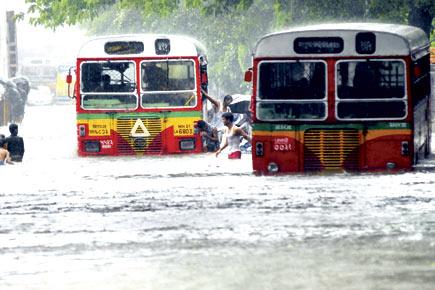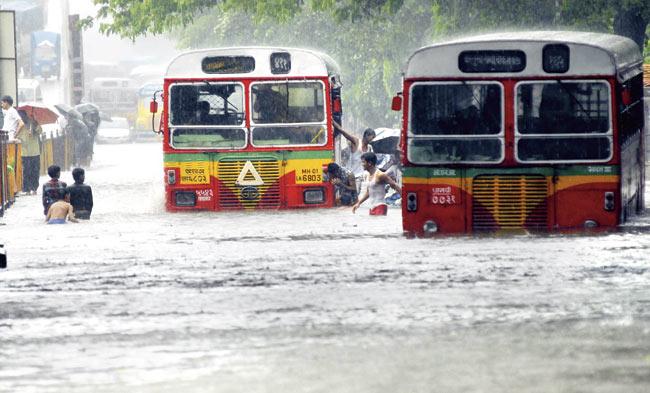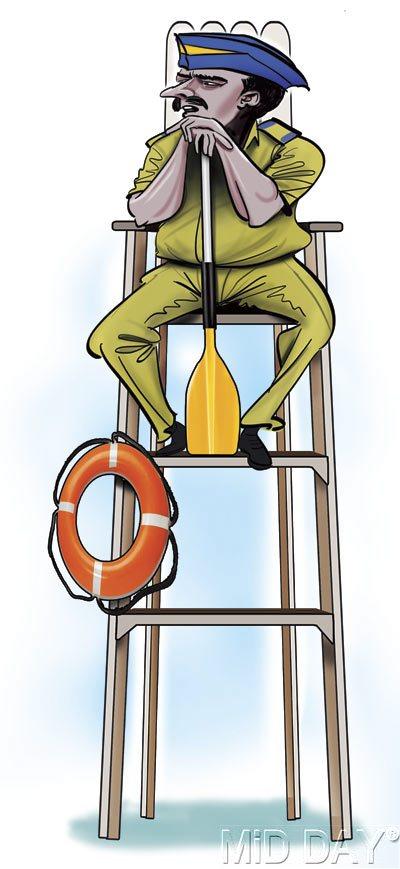Mumbai Police has prepared a list of areas where waterlogging is a regular feature, and has also trained its constables to handle emergency situations, including first-aid and CPR

Areas like Hindmata, Milan Subway, Dadar regularly get flooded during the rains
Monsoon is yet to fully come to the city, but the police are taking all steps to prepare themselves for the worst of situations. The Mumbai Police have prepared a list of areas where waterlogging occurs every year, along with another list where landslides wreak havoc. Police constables have also been trained to handle emergencies during flooding.
ADVERTISEMENT

Areas like Hindmata, Milan Subway, Dadar regularly get flooded during the rains. File pic
According to the police, the men in uniform have been made to undergo basic training courses to take care of people affected by waterlogging that happens every year without fail in the city. Senior police officers are of the view that constables will man these spots as it starts raining.

Illustrations/Amit Bandre
“We are prepared for the rains and have also had several meetings with BMC officials about what can be done in case of an emergency. We have also made a list of schools and colleges where people can be rescued and sheltered during emergencies,” said Sanjay Barkhund, deputy commissioner of police (operations), Mumbai Police.
Among the many plans that the police have is to install CCTV cameras, albeit on a temporary basis, in areas with a history of waterlogging. Police have also made a list of ambulance owners, good swimmers, etc to aid them in rescue operations, if need be.
Besides this, the constabulary has had a joint training session with senior BMC officers and officials from the disaster management cell of the BMC. This is because most people tend to call 100 during crisis, and the police are usually the first to reach the spot.

“The civic body had organised sessions in which constables were told what to do in case of an emergency,” said Additional Commissioner Of Police (Central Region) Madhukar Pandey. Police were also trained in cardiopulmonary resuscitation (CPR) and other first-aid tips.
Police will also get a regular feed of high tide warnings from the Met department, and will pass them on to the citizens. “We have tied up with mobile carriers to send update messages to people, warning them of when high tides would occur and telling them to venture out only if it was absolutely necessary,” Barkhund added.
 Subscribe today by clicking the link and stay updated with the latest news!" Click here!
Subscribe today by clicking the link and stay updated with the latest news!" Click here!






